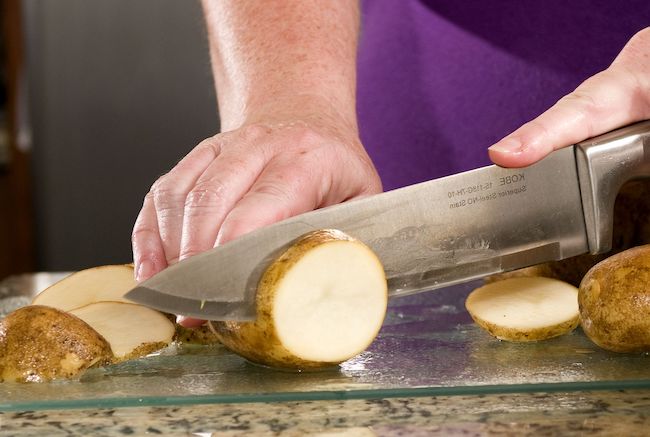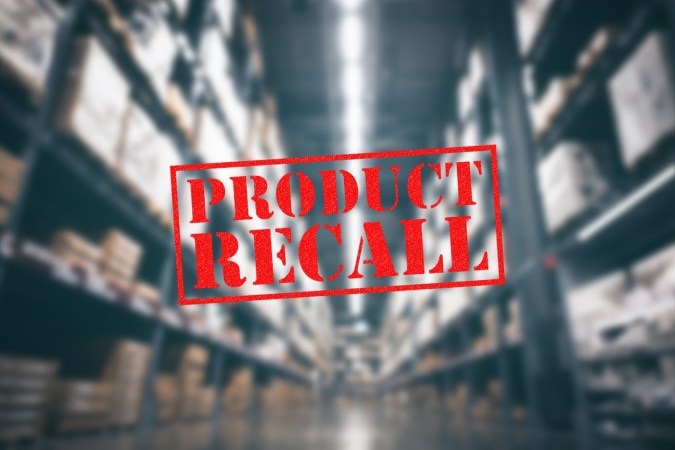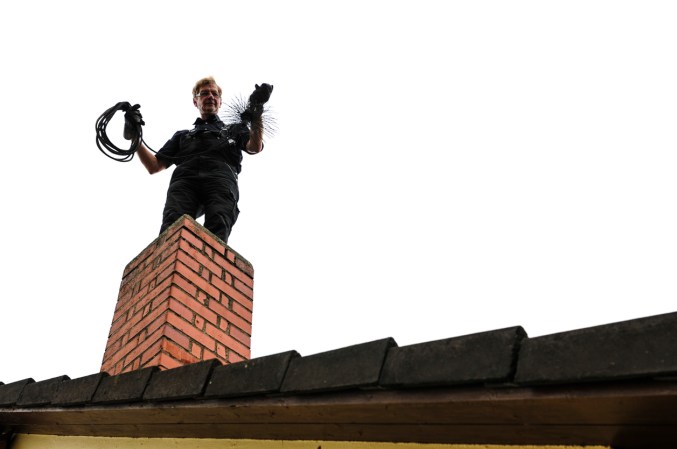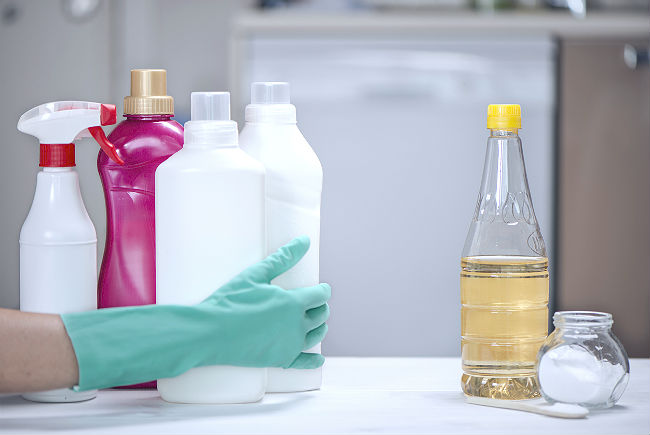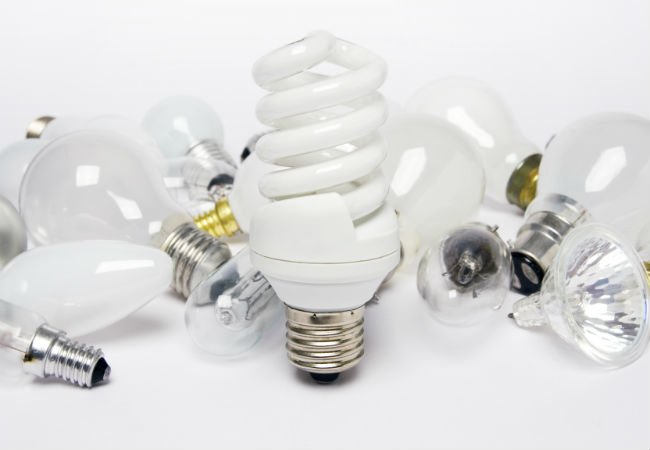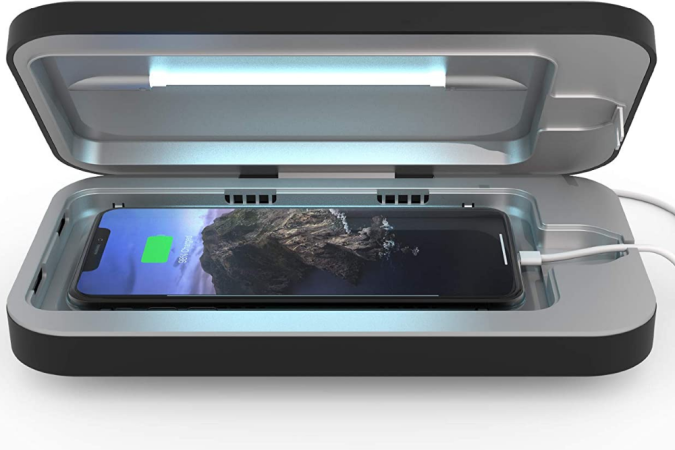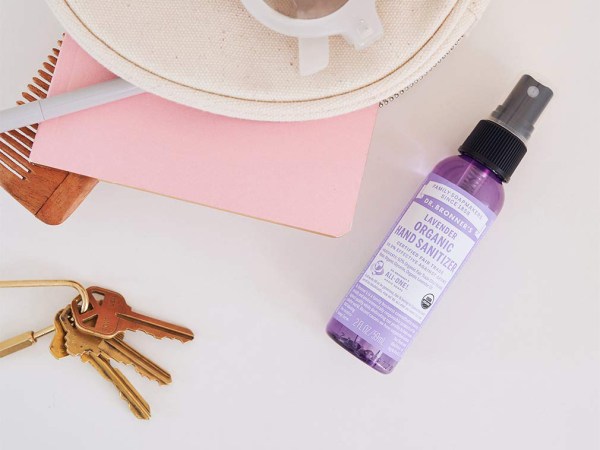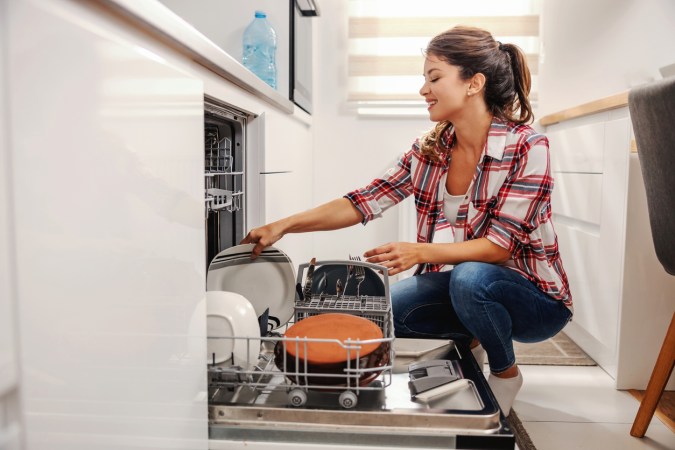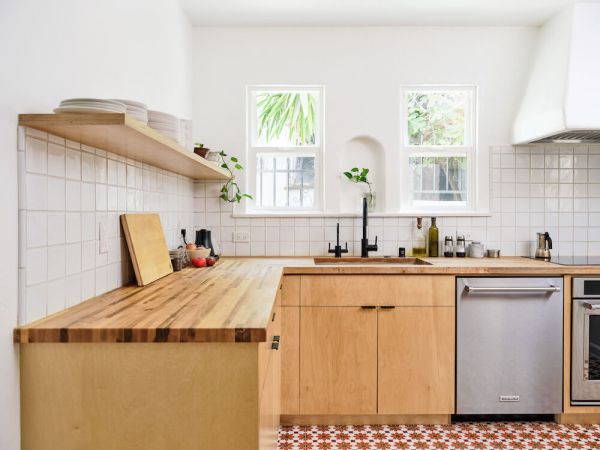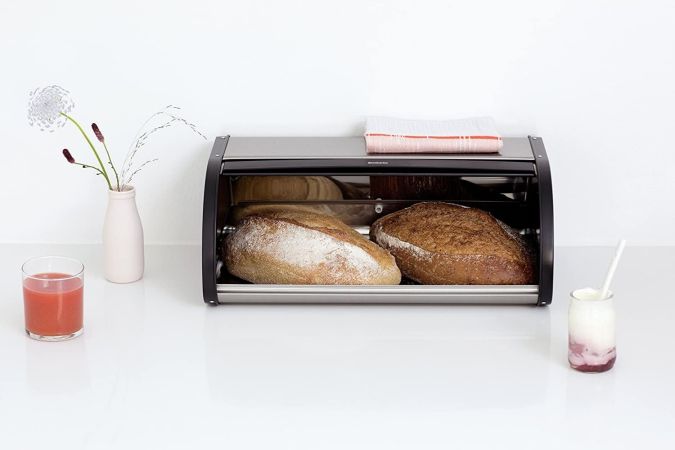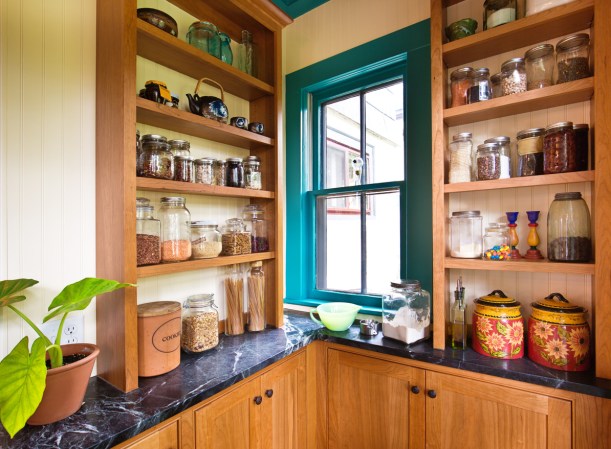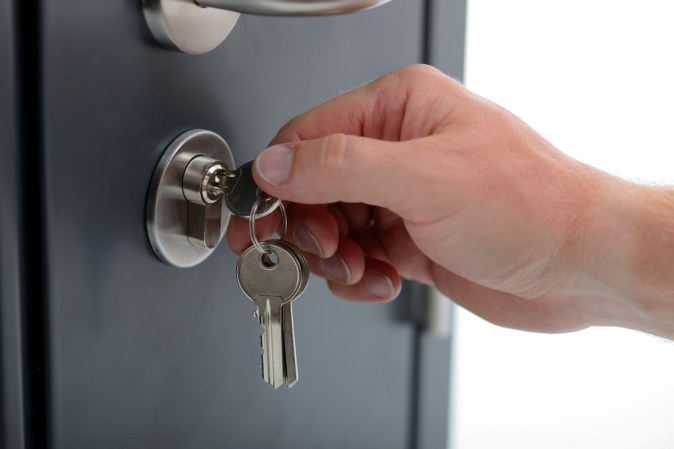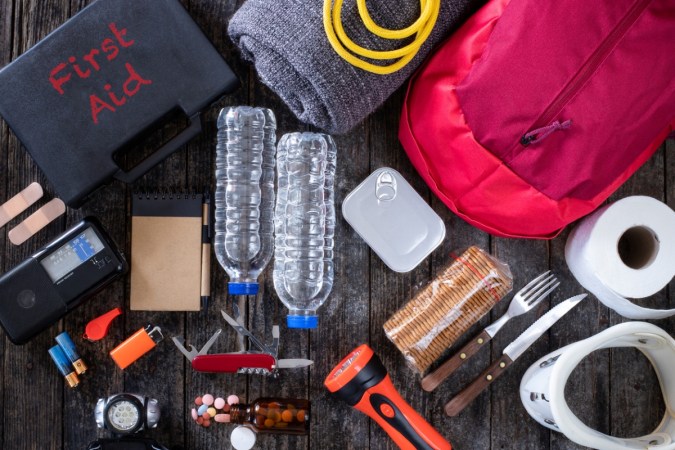We may earn revenue from the products available on this page and participate in affiliate programs. Learn More ›
Traditionally, the cutting boards found in any kitchen were made out of wood. Then plastic cutting boards arrived on the market, and found their way into kitchens across the country. Glass boards are a relatively recent idea, and they have gained much admiration in a fairly short amount of time. Glass cutting boards have some benefits, but there are a few drawbacks you should know before you use these surfaces in your own home.
The Benefits of Glass Cutting Boards
A glass cutting board is more hygienic than a wooden cutting board, and poses less of a risk for spreading foodborne illness. The reason for glass boards’ relative cleanliness is their nonporous surface that does not amass bacteria as easily as mother materials. This surface also makes them easy to rinse and wipe clean.
Due to protective treatments, glass boards are not likely to scratch when you scrub vigorously during cleaning. Compare that to wood boards, which must be washed gently and dried thoroughly to protect the material.
Home cooks with limited kitchen space may appreciate that glass cutting boards are usually lightweight and slimline, making them easy to store. If you prefer to keep your cutting boards on the countertop, glass can look very beautiful. Clear glass boards and glass embellished with designs or colors are available.
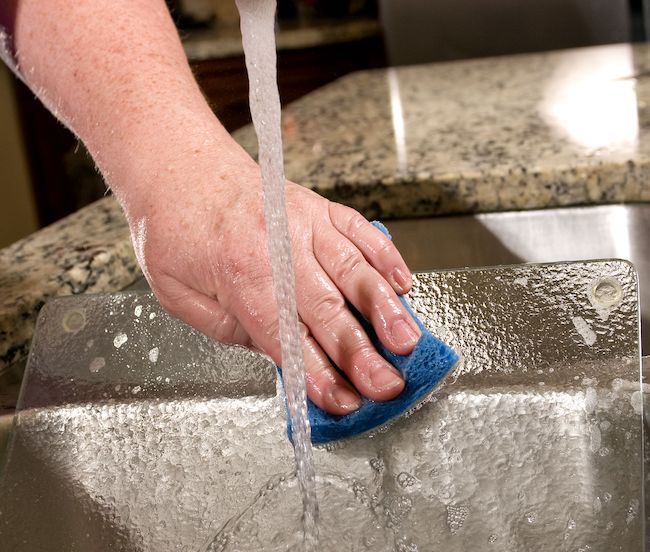
Are Glass Cutting Boards Safe?
With all the benefits of glass cutting boards, there are also a number of potential concerns.
- The surface can be slippery. Many foods have the tendency to slip on a smooth glass surface. This leaves room for serious accidents to happen. Even if you are an experienced cook and able to cut at a speedy pace, your food could slip at any time and you might cut your finger instead. The slick surface of a glass chopping board is not ideal when you intend to quickly slice and dice large amounts of produce. Keep in mind that glass cutting boards are especially slick when wet.
- You’ll need to sharpen knives more often. The surface of a glass cutting board may be beautiful and easy to clean, but that material will dull your knives over time. As the blade comes into contact with the hard glass, the knife becomes blunt and requires more frequent sharpening (because it is safer to work with a sharp knife than a dull knife). Wooden and plastic cutting boards perform better when it comes to keeping knives sharp.
- You’ll use more effort. A glass board will not offer any “give” when you apply pressure as you cut, which makes it different from a wooden or plastic board. This means you may exert extra force when cutting your food, which can increase the risk of accidents, should you happen to slip while holding a knife.
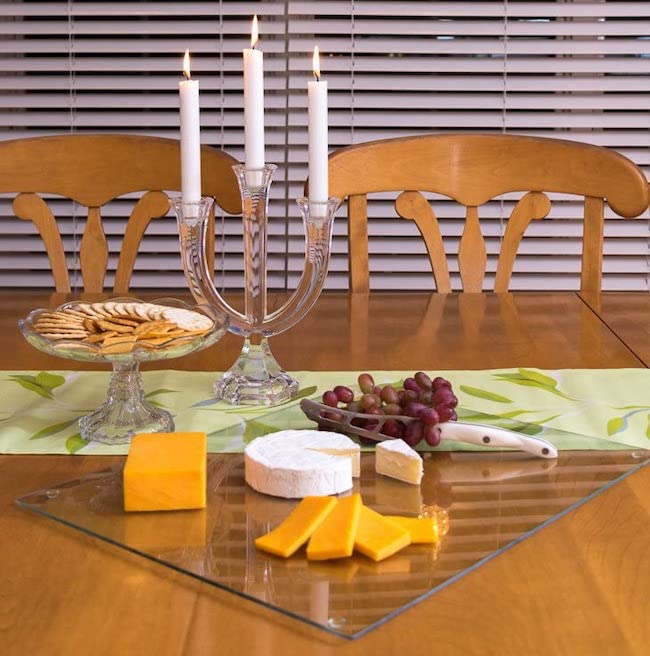
Choose Wisely
A glass cutting board is easy to care for and store, but they come with some downsides and potential dangers. Weigh your options carefully when choosing a new cutting board. If you like the look of glass cutting boards but wish to avoid the risks associated with cutting on them, consider using your glass cutting board as a tray for displaying charcuterie, snacks, cookies, or other tableside delights. Whatever you choose, keep your cutting board clean for a healthy home.
A version of this content was originally published at Kitchenistic.com.
